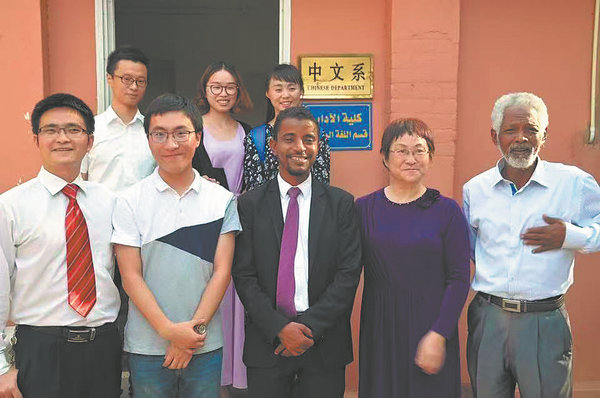Teaching in the midst of war
Returning to his post online, Albadawe Abdalla leads the University of Khartoum's Chinese Language Department with lessons shaped by years of schooling in China, Zhao Xu reports.


Abdalla recalls his father planting the seed early on: "When I was little, he would read Arabic translations of Chinese magazines and discuss Chinese politics and leaders, including Mao Zedong, often over morning tea with friends. I picked up words and names here and there."
Later, Abdalla watched Jackie Chan films, eager to see "whether a kung fu star could truly fly". "China and Sudan were expanding economic cooperation and forging closer ties, which explains its daily presence in the news," he says. "When I graduated from high school, I chose Chinese over economics and law. I wanted to understand China not through a Western lens, but by reading its story as the Chinese tell it, in their own language — both literally and metaphorically."
That was in 2004, two decades after the Chinese Language Department was founded. With only about 20 students and very few Chinese teachers — including Li Huiyang, who taught there from 2006 to 2008 — resources were scarce.
"Chinese language education in Sudan was just beginning to recover after the civil war and severe economic hardship of the 1990s. There was a serious shortage of teachers, which is why I went as a volunteer, recruited from a middle school in Lanzhou, northwestern China," recalls Li, who remembers sweating through classes during the hot months following the rainy season.



































